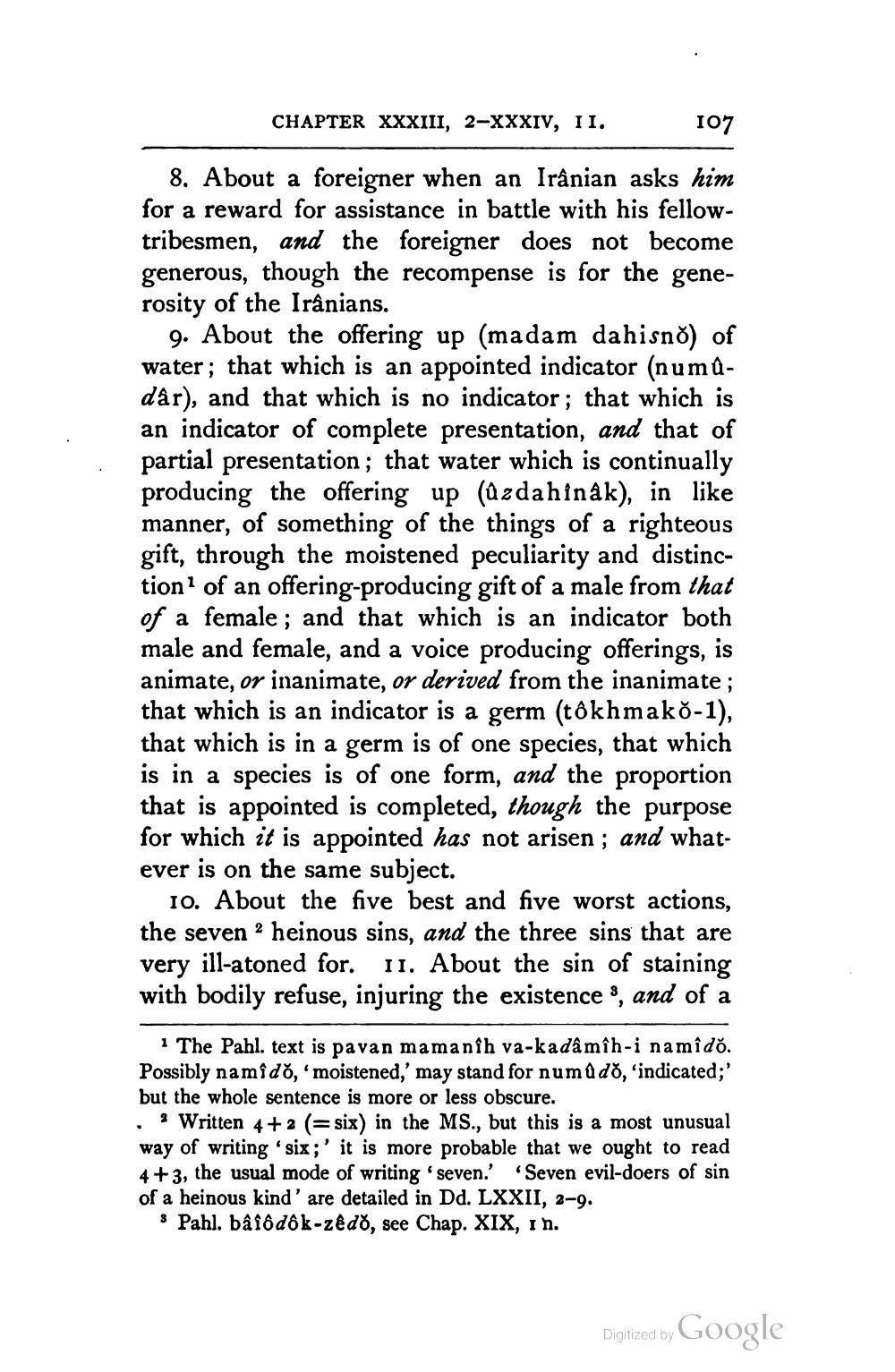________________
CHAPTER XXXIII, 2-XXXIV, 11.
107
8. About a foreigner when an Iranian asks him for a reward for assistance in battle with his fellowtribesmen, and the foreigner does not become generous, though the recompense is for the generosity of the Iranians.
9. About the offering up (madam dahisno) of water; that which is an appointed indicator (nu můdår), and that which is no indicator; that which is an indicator of complete presentation, and that of partial presentation; that water which is continually producing the offering up (üzdahinak), in like manner, of something of the things of a righteous gift, through the moistened peculiarity and distinction of an offering-producing gift of a male from that of a female; and that which is an indicator both male and female, and a voice producing offerings, is animate, or inanimate, or derived from the inanimate; that which is an indicator is a germ (tókhmako-1), that which is in a germ is of one species, that which is in a species is of one form, and the proportion that is appointed is completed, though the purpose for which it is appointed has not arisen ; and whatever is on the same subject.
10. About the five best and five worst actions, the seven ? heinous sins, and the three sins that are very ill-atoned for. 11. About the sin of staining with bodily refuse, injuring the existences, and of a
1 The Pahl. text is pavan mamanih va-k adâmîh-i namîdo. Possibly namido, moistened,' may stand for num údo, 'indicated;' but the whole sentence is more or less obscure. . Written 4+2 (=six) in the MS., but this is a most unusual way of writing six;' it is more probable that we ought to read 4+3, the usual mode of writing seven.' 'Seven evil-doers of sin of a heinous kind' are detailed in Dd. LXXII, 2-9.
8 Pahl. bâiôdôk-zêdo, see Chap. XIX, i n.
Digitized by Google




